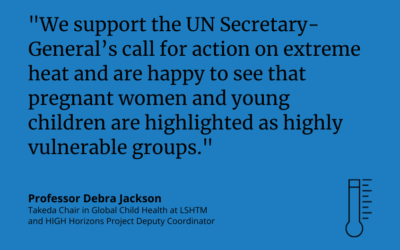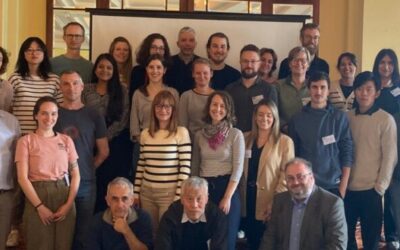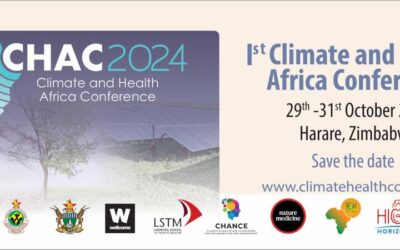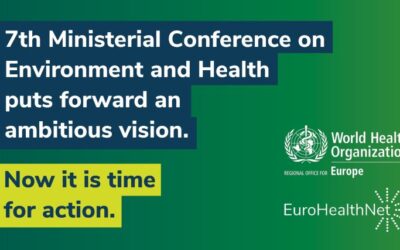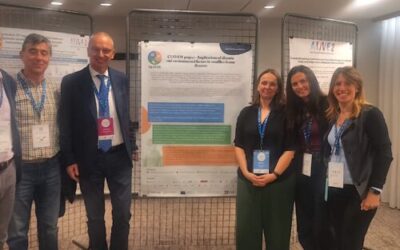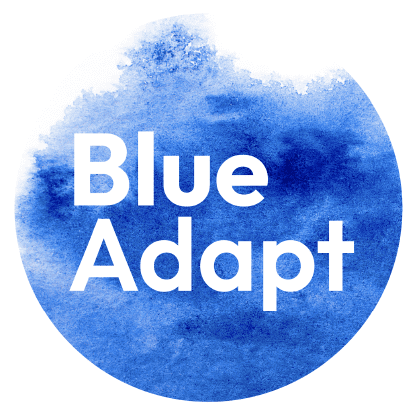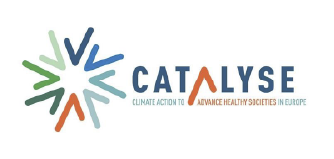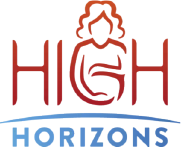The European Climate-Health Cluster aims to address climate change-induced health risks and help preparedness and adaptation.

Linking climate change & health
As a cluster, we promote synergies between the
environmental and health (research) communities and
Jointly, we generate a better understanding of the link
between climate change and health impacts and threats



Science translation for
policy & practice
We support policymakers in understanding the underlying health, economic and social impacts of climate change. We also inform evidence-based decisions for their policies and climate action acceleration.




Data analysis, management,
protection & standardisation
We share experiences and knowledge about data
management and protection, and we engage different
disciplines in data analysis and predictive modeling.




mailto:info@project-trigger.eu
Communication
& dissemination
We communicate and disseminate the Cluster’s work to raise awareness and transfer knowledge about climate-induced health risks.




Early warning systems
& models
We develop insights on how early warning systems can increase awareness and knowledge. This includes incentivising action to prevent risks and adapt.




Indicator development
We develop and monitor mechanisms to assess the impact of policies on health. We also make recommendations to decision-makers to mitigate risks and promote adaption.





Linking climate change & health
As a cluster, we promote synergies between the
environmental and health (research) communities and
Jointly, we generate a better understanding of the link
between climate change and health impacts and threats



We support policymakers in understanding the underlying health, economic and social impacts of climate change. We also inform evidence-based decisions for their policies and climate action acceleration.
Science translation for
policy & practice



We communicate and disseminate the Cluster’s work to raise awareness and transfer knowledge about climate-induced health risks.
Communication
& dissemination



We share experiences and knowledge about data
management and protection, and we engage different
disciplines in data analysis and predictive modeling.
Data analysis, management,
protection & standardisation



We develop insights on how early warning systems can increase awareness and knowledge. This includes incentivising action to prevent risks and adapt.
Early warning systems
& models



We develop and monitor mechanisms to assess the impact of policies on health. We also make recommendations to decision-makers to mitigate risks and promote adaption.
Indicator development


projects
partners
countries
objectives
funding Information

These projects are funded by EU’s Horizon Europe Research and Innovation initiative under Grant Agreement numbers 101057764 BlueAdapt, 101057131 CATALYSE, 101057690 CLIMOS, 101057843 HIGH Horizons, 101057554 IDAlert, 101057739 TRIGGER
news
Navigating the Shifting Landscape of Social Media Data for Climate and Health Research
Climate change is undeniably one of the most pressing challenges of our time, with far-reaching consequences for human health and well-being. Understanding public perceptions and experiences related to climate-induced health hazards is crucial for developing effective...
HIGH Horizons applauds the UN Secretary-General call for global action on extreme heat
Last week, the UN Secretary-General António Guterres called for urgent action to address extreme heat, drawing attention to increasing global temperatures and the health and economic impacts of the climate crisis. The Secretary-General called for urgent actions to...
BlueAdapt Symposium: research, policy and working with the community
Author: Eleanor Morrissey As people are getting ready to enjoy the summer across Europe, more and more people will flock to the coast to enjoy bathing in the sea water, relaxing in the surrounding area, and enjoying locally sourced seafood. For most people, they will...
HIGH HORIZONS’ PARTNER HOSTS INAUGURAL CLIMATE AND HEALTH AFRICA CONFERENCE 2024
HIGH Horizons’ partner, CeSHHAR, in collaboration with the Zimbabwean Ministry of Environment, Climate and Wildlife and the Ministry of Health and Childcare, will host the first Climate and Health Africa Conference (CHAC). The conference, held in Zimbabwe in October...
Updates from HIGH Horizons: Reflections from Heat Action Day
As our earth continues to warm, extreme heat events are becoming more frequent and severe, leading to significant health risks to communities around the globe. Populations such as pregnant and postpartum women, infants, and health workers are some of the groups most...
Takeaways from the WHO 7th Ministerial Conference on Environment and Health
The recent WHO 7th Ministerial Conference on Environment and Health, held in Budapest, brought together experts, policymakers, and stakeholders to address pressing environmental and health challenges. Countries who attended have adopted the Budapest Declaration, which...
CONCEPTUAL FRAMEWORK ON EXTREME HEAT AND MATERNAL, NEWBORN AND CHILD HEALTH
HIGH Horizons, alongside the World Health Organization (WHO), has developed a conceptual framework for extreme heat and maternal, newborn and child health. Annie Portela, Department of Maternal, Newborn, Child and Adolescent Health and Ageing at the WHO, spoke to us...
Advancing Veterinary Medicine: ALIVE 2 in Nice, France
The picturesque city of Nice, France, played host to the second instalment of the Animal Leishmaniosis International Veterinary Event (ALIVE 2) on April 19-20, 2024. This eagerly awaited gathering saw veterinary professionals from around the globe convene to delve into the latest advancements and insights in combating Leishmaniosis, a disease of paramount concern in both human and animal health.
TRIGGER Project presentation at the EGU
The project was recently presented at the European Geosciences Union (EGU) conference.
The Trigger Project presentation at the National Institute of Technology Calicut, India
The lecture served as a reminder of the urgency to address climate change not only as an environmental issue but also as a pressing public health concern.
press release
english
Brochure
The Climate-Health Cluster is a Horizon Europe cooperation between 6 European research and innovation projects. We collaborate to increase the societal and policy impact of EU-funded research linked to climate, human health and climate policy.

policy brief
Discover how climate change affects human health and why it is crucial to integrate health protections into EU climate policies. In this report, the European Climate-Health Cluster urges legislators and policymakers to collaborate in creating evidence-based policies to effectively protect public health against climate challenges. Click here to read the full report and join us!

contact
If you want to get in contact with any project from the Climate-Health Cluster or follow them on social media, find all the links in our contact section.


